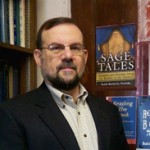The memory of the Holocaust today is vulnerable. Between the Diaspora and Israel the Jewish people are fighting about the meaning of the Holocaust, encoding in our ideological debates about who we want to be in the world our increasingly polarizing interpretations about our recent past. It is the nature of trauma that we become conditioned to act and behave in certain ways as a result of what we experience. But would it have been possible to anticipate how quickly and divisively our shared trauma would divide us as a people?
Some in the Jewish community understand the primary legacy of how we remember the Holocaust as manifesting in the moral obligation that we remain vigilant as a people against the next threat, from wherever it may come. This is what lies beneath Prime Minister Netanyahu’s insistence on analogizing Iran to Nazi Germany, beneath the language of “Auschwitz” borders as applied to final status negotiations in Israel, beneath the insistence by the Anti-Defamation League that no defacing of a synagogue go untweeted. The Holocaust signified the worst of our vulnerability of a people: if we will not be for ourselves, who will be for us? (Mishna Avot 1:13)
Others in the Jewish community deploy the metaphor and memory of the Holocaust – not without some verve and risk – as a cautionary tale for the Jewish people in how we exercise power over others. The memory of victimhood creates an impulse to ‘compensate;’ as an abuse victim can become an abuser, there is an emerging voice in our community that cautions us to not allow our memory to become an echo chamber in which we become deaf to the emergence of our own power as a people, and to our changing role in history. If we are only for ourselves, what are we? (ibid.)
And yet still others translate the memory of Jewish victimhood to a broad moral obligation that we become the primary actors in the world to prevent genocide wherever it materializes, to embody a culture of urgency that no one else can understand quite as well as we do. Take a glance at the United States Holocaust Memorial Museum’s “Featured Pledges” online and the main lessons that are broadcast there from both Jewish leaders and non-Jewish leaders alike: We learn from our trauma that someone must stand for injustice wherever it appears, and it had best be us. If not now, when? (ibid.)
Memory of our trauma, then, animates a culture of self-preservation; a fear of excess self-aggrandizement; and a sense of global responsibility. Which is the real Jewish memory?
This week is Parshat Zakhor – Jewish Memory week, my favorite week in the Jewish liturgical calendar. In preparation for Purim we fulfill the Biblical obligation to remember to obliterate the memory of Amalek by telling three Amalek stories: in the Torah reading, in the Haftarah reading from the Prophets, and in the reading of Esther. We start in synagogue on Shabbat by reciting the verses that outline this commandment in Deuteronomy 25:17-19. The verses recall Amalek’s treachery in attacking us from behind during our moment of weakness and vulnerability; and they command us that when we finally reach the point that we are settled in our homeland, we are obligated to wipe the memory of Amalek from the face of the earth. The verses are unsettling: must we repay their villainy with genocide? And yet something about the conditionality of the decree – the fact that the obligation only kicks in when all else is resolved, when all debts are paid – suggests an eternality of this obligation, a sense that it is never meant to come to pass. Who would we be, after all, if our antithesis no longer existed? Perhaps – perhaps – the Torah’s phrasing wants us to be burdened by an eternal curse to remember, to feel that we will never actually be able to forget. We hold on to the memory not to finish the job, but because this victimhood reminds us to be vigilant that Amalek is still out there.
The haftarah from 1 Samuel 15 tells a different story: not the eternal story of being burdened by an obligation that will never come to pass, but the equally tragic and exasperating story of the one time when we held Amalek in our grip and managed to let him slip through, the lapse of judgment by King Saul in not killing Agag, leader of Amalek, when he had the chance. Saul misses the point of the whole exercise, encapsulated in his attempt to defend himself to Samuel by saying that they only kept the best of the flock but dispensed with the rest. Saul thinks he is being entrepreneurial, but the very separation between the weak and the strong signals the same moral confusion originated by Amalek in their attack of the Israelites from the rear. When we start making calculations and considerations in our moral behavior, seduced either by the general temptation not to act, or by the usual suspects of wealth and power, we fail to live up to the moral obligations that are explicitly before us. Urgency gives way to an arbitrary calculus of values and needs.
And finally, in the Book of Esther, we are told straightaway that Haman’s lineage is through Agag – this is the book’s explicit attempt to remind us that this is no run of the mill anti-Semitic arch villain, but that very same Amalek in Persian garb. Of course, the opportunity to obliterate the seed of Amalek entirely is no longer available; we must now confront the various Amaleks as they materialize before us in each generation, though we are never quite as fortunate as Mordechai and Esther to know exactly what they were dealing with. And though the story is one of existential survival against a genocidal decree, and though the text neither valorizes nor celebrates powerlessness, the story is also a deep mockery of what happens when those who were once powerless finally come into some authority. The haunting chapter 9 of the Book of Esther imagines that once Mordechai has become powerful, and only once the people who sought him harm have become terrified of him, only then does he and do the Jews strike at their enemies with the sword. The phrasing insists that even in this moment the behavior by the Jews needn’t have been inevitable, that once we had dispensed with Haman and his sons – as the Biblical commandment required of us – we might have pursued a peaceful resolution. The text instead is something between a mockery and a cautionary tale: Be careful of the power you pray for! It may make you something you wish you never were.
The three stories about Amalek hang together thematically, but they are completely different. They are three different takes on memory and trauma, and how a people behaves – sometimes consciously, sometimes unconsciously – in making sense of how history has acted upon us. That Amalek becomes a litmus test for different values narratives is not surprising: Memory is malleable and fundamentally unstable. It informs our consciousness and shapes our behavior in evolving ways, producing totally different discourses of meaning even as it derives from historical events that do not change.
Purim is not one story of Jewish memory; it is the story of Jewish memory as a perpetually evolving, perpetually animating impulse.
The worst tragedy we can perpetuate today as the Jewish people would be the act of violence to our own past that comes with making memory monolithic – with isolating only one of these moral threads from this three-fold cord of self/other/now and demanding that it and only it speak as the moral response to our own history of victimhood. How brilliant is our tradition for giving us this Memory Week, with its multiple narrations of the same Amalek! How essential is it today, more than ever, that we heed all three lessons.
Yehuda Kurtzer is President of the Shalom Hartman Institute of North America, a Fellow of the Hartman Institute’s iEngage project, and the author of the newly released Shuva: The Future of the Jewish Past (Brandeis, 2012.) He was previously the inaugural Charles R. Bronfman Chair of Jewish Communal Innovation at Brandeis University. Dr. Kurtzer has a doctorate from Harvard in Jewish Studies, an MA in Early Christianity from Brown, and was a Wexner Graduate Fellow. He also co-founded Brookline’s Washington Square Minyan, and lectures widely in the North American Jewish community.
ON Scripture — The Torah is a weekly Jewish scriptural commentary, produced in collaboration with Odyssey Networks and Hebrew College. Thought leaders from the United States and beyond offer their insights into the weekly Torah portion and contemporary social, political, and spiritual life.
















